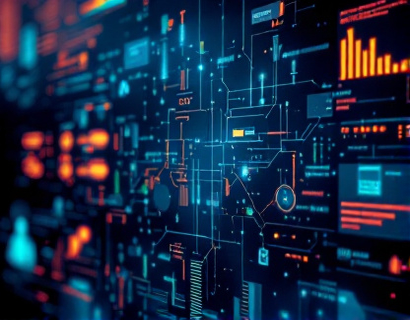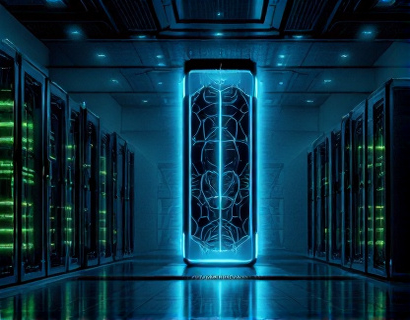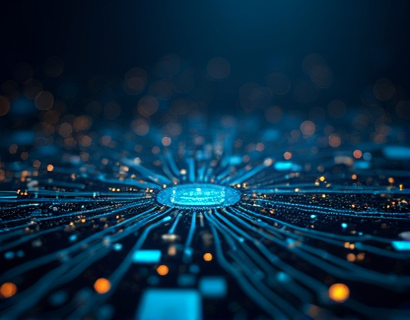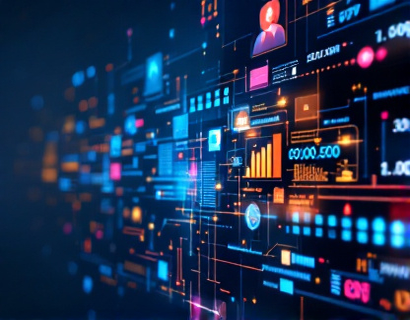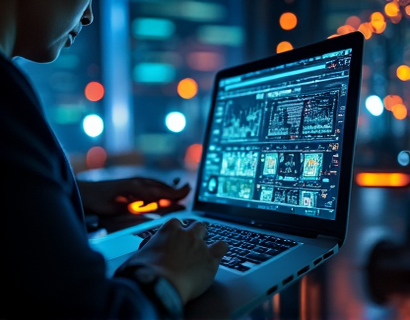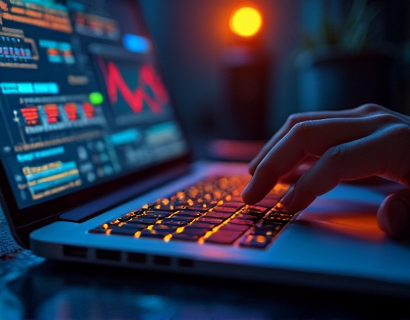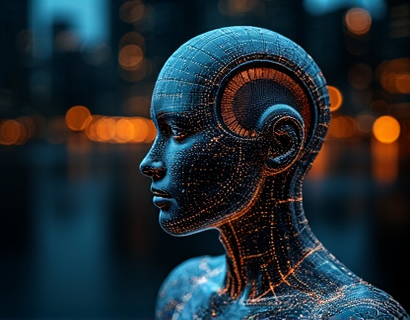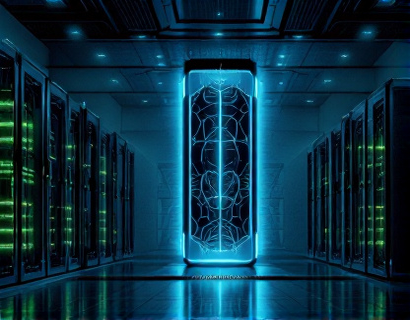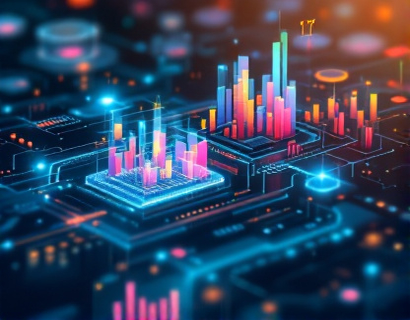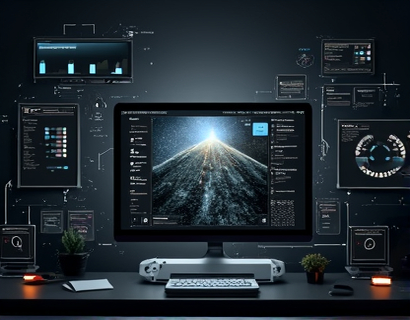Unlocking Productivity with AI and Crypto: Next-Gen Digital Solutions for Tech Enthusiasts
The intersection of artificial intelligence and cryptocurrency has given rise to a new era of digital solutions that promise to revolutionize productivity for tech enthusiasts and professionals alike. This article delves into the innovative ways these technologies are merging to create seamless, advanced task management systems and explore how they can transform the productivity landscape.
In recent years, the tech community has witnessed an explosion of interest in both artificial intelligence and cryptocurrency. Each field has its own set of tools and applications, but when combined, they offer unprecedented opportunities for enhancing productivity. The integration of AI with blockchain technology and cryptocurrencies is not just a novel concept but a practical approach to streamlining workflows, automating repetitive tasks, and securing data transactions.
Understanding the Basics: AI and Cryptocurrency
To fully appreciate the potential of AI and cryptocurrency in boosting productivity, it's essential to understand the fundamentals of each technology.
Artificial intelligence refers to the simulation of human intelligence processes by machines, particularly computer systems. These processes include learning, reasoning, problem-solving, perception, and language understanding. AI technologies such as machine learning, natural language processing, and computer vision are already transforming various industries by automating complex tasks and providing insights from vast amounts of data.
Cryptocurrency, on the other hand, is a digital or virtual currency that uses cryptography for security. It operates on a decentralized network, typically a blockchain, which ensures transparency, immutability, and security of transactions. Bitcoin, the first and most well-known cryptocurrency, paved the way for thousands of alternative coins and tokens, each with unique features and use cases.
The combination of AI and cryptocurrency leverages the strengths of both technologies. AI can enhance the functionality and security of blockchain-based systems, while blockchain can provide a secure and transparent environment for AI applications to operate.
AI-Driven Task Management
One of the most immediate and impactful applications of AI in productivity is in task management. Traditional task management tools often fall short in handling complex, dynamic workflows. AI-powered tools, however, can adapt to user behavior, predict task priorities, and automate routine tasks, significantly enhancing efficiency.
For instance, AI can analyze a user's past behavior to predict the most optimal times to schedule tasks, suggesting the best moments for deep work or meetings. Machine learning algorithms can also identify patterns in task completion times and resource allocation, optimizing project timelines and reducing delays.
Moreover, AI can integrate with calendar applications to automatically schedule meetings based on availability and preferences, eliminating the back-and-forth of email exchanges. It can also prioritize emails and notifications, ensuring that users focus on the most critical communications first.
Smart Contracts and Automated Workflows
Cryptocurrency's most transformative feature for productivity is the use of smart contracts. Smart contracts are self-executing contracts with the terms of the agreement directly written into code. They run on blockchain networks, ensuring that all parties adhere to the agreed terms without the need for intermediaries.
In a professional setting, smart contracts can automate a wide range of tasks. For example, they can be used to trigger payments upon the completion of a project milestone, ensuring timely and secure transactions. This automation reduces the risk of delays and disputes, streamlining workflows and enhancing trust among collaborators.
AI can further enhance smart contracts by providing predictive analytics and real-time insights. For instance, AI can monitor the progress of a project and adjust the smart contract parameters dynamically based on performance metrics, ensuring that the project stays on track.
Enhanced Security and Data Management
Security is a paramount concern in any digital solution, and the combination of AI and cryptocurrency offers robust solutions. Blockchain's inherent security features, combined with AI's advanced encryption and anomaly detection capabilities, create a powerful defense against cyber threats.
AI can continuously monitor blockchain networks for unusual activity, detecting and mitigating potential security breaches in real-time. This proactive approach to security ensures that sensitive data and transactions remain protected, giving users peace of mind as they manage their tasks and projects.
Data management is another area where AI and cryptocurrency intersect to improve productivity. AI can analyze large datasets to provide actionable insights, while blockchain ensures the integrity and traceability of data. This combination is particularly valuable in industries that deal with complex data ecosystems, such as finance, healthcare, and supply chain management.
Decentralized Applications and Collaboration
Decentralized applications (dApps) powered by blockchain technology are redefining how teams collaborate and manage projects. These applications run on decentralized networks, eliminating the need for central authorities and reducing the risk of single points of failure.
AI can enhance dApps by providing intelligent collaboration tools. For example, AI-driven chatbots can facilitate communication within teams, summarizing discussions, and action items. AI can also analyze project data to identify bottlenecks and suggest optimizations, ensuring that projects progress smoothly.
Furthermore, AI can personalize the user experience within dApps, tailoring interfaces and features based on individual preferences and roles. This level of customization enhances user engagement and productivity, making collaboration more effective and enjoyable.
Future Trends and Innovations
The integration of AI and cryptocurrency is still in its early stages, and the future holds even more exciting possibilities. One emerging trend is the development of AI-powered virtual assistants that operate on blockchain networks, providing secure and private assistance to users.
Another area of innovation is the use of AI in cryptocurrency trading and investment. AI algorithms can analyze market data, predict trends, and execute trades with high precision, offering new opportunities for tech-savvy investors.
Additionally, the convergence of AI and cryptocurrency is likely to lead to the creation of new economic models, such as decentralized finance (DeFi) platforms that combine AI-driven financial services with blockchain's transparency and security.
Conclusion
The fusion of AI and cryptocurrency is unlocking new dimensions of productivity for tech enthusiasts and professionals. By leveraging the strengths of both technologies, we can create advanced task management systems, secure data management solutions, and innovative collaboration tools. As these technologies continue to evolve, the potential for enhancing productivity and transforming the digital landscape is immense. Embracing these next-gen digital solutions can give users a significant edge in the ever-competitive world of technology.



